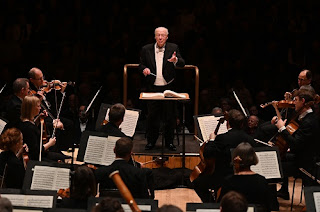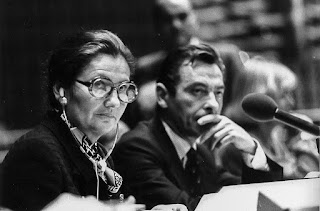The first is by the supreme stylist of the Irish Times, Fintan O'Toole,
the second by the outstanding author of The Capital, enlarging upon his time in Brussels,
the third an alarming but by no means despairing sequel to the writer's chronicle of where it all began, during his time in Russia.
The rest of the pictures, for punctuation's sake, are drawn from our last big march in October, as jovial and inventive as the others; we missed the bout of rain, having retreated to the ICA for lunch, meeting the same folk with 'my' Tillmans T shirt as before - pictured below - after which I went down to Parliament Square and caught the last four speeches).
Meanwhile, to the books. All three give us a bigger perspective than you can glean from journal or newspaper articles. Fintan O'Toole traces the Brexit delusion to England's (note: not Great Britain's; O'Toole is careful to make the distinction) swivelling between abjection and grandiosity after the Second World War, the self-pity of winning the war but losing the peace (including resentment that Germany prospered thereafter).
'In the English reactionary imagination dystopian fantasy was and is indistinguishable from reality', and O'Toole uses an address to the anti-European Tories of the Bruges group as one example.
The sleight of hand was not subtle: Hitler tried to unite Europe, so does the EU, therefor the EU is a Hitlerian project. But the lack of subtlety did not stop the trope being used in the Brexit campaign. 'Napoleon, Hitler, various people tried this [unifying Europe], and it ends tragically. The EU is an attempt to do this by different methods,' Boris Johnson told the Daily Telegraph on 15 May 2016, a month before the Referendum.
O'Toole tracks Johnson's mendacity back to the beginning, too. It's why he was able to paint such a devastating portrait for the New York Review of Books, 'The Ham of Fate', last August. I learnt much more that was painful-funny here, including the absurd and slippery speech the person we must now know as Diana Ditch made for his selection as Tory candidate in the safe seat of Henley-on-Thames. All O'Toole has to do is quote the supposed sleight of hand with which he turns his selfish act of depriving his pregnant wife of toast in hospital into his attempt to buy some more, only to find that 'you can't pay for things on the NHS...we need to think of new ways of getting private money into the NHS'. Job done; Johnson replaced the retiring Michael Heseltine, irony of ironies (MH is our greatest Remain speechmaker, if you didn't know).
There's more, including some outrageous playing with facts about our not-so-easy-to-check medieval history. O'Toole refers to La Ditch's brand of absurd equations as 'Brexit camp...edgy clowning in which everything is at once very funny and highly sinister'. But I hope no-one's laughing now. Those who vote for this criminal liar, and they include Theresa May, happy to canvas for someone she has said has no 'moral integrity', have given up any moral pretence whatsoever.
It has to be admitted, though, that while Diana and co were playing with our future, successive governments did next to nothing to enlighten us about why the European Union matters. Which is why Robert Menasse's Enraged Citizens, European Peace and Democratic Deficits should be essential reading everywhere, not least in schools. It presents as a rather dry little handbook, but Menasse's style, as translated by Craig Decker, is anything but. Arriving in Brussels for his research period, he notes his objections to the project, and how pleasantly surprised he was at both the openness and the anything-but-faceless so-called bureaucracy. But while he praises the Parliament and the Commission, 'two supranational institutions, which are truly European in their aspirations and duties', Menasse is critical of the Council, 'an institution in which national interests, national sensitivities, national fictions, etc. are defended', thwarting 'logic and rationality in a wretched game of national affectations and so-called interests'. And the power of that Council has been strengthened, not weakened.
For whoever supports nationalism - 'because that's just the way people are' - will be swept away by nationalism, because in the European Union and the globalized world, national furore can never really be satisfied. And the rage will become extreme once people realize that the 'defence of national interests' was a fraud from the get-go. The only things being defended are the interests of the national political and economic elites.
Sound familiar? One of Menasse's solutions is for the EU to abandon nations in favour of regions, the only areas in which we're truly rooted. 'Europe, in point of fact, is a Europe of regions. The task of European politics should therefore be to systematically recognise and develop what Europe, in fact, already is'. And has already been acknowledged as such through the European grants to restore deprived areas like Sunderland and Cornwall (who collectively were too stupid to realise that where their government had deserted them, the EU stepped in). Cultural diversity must be celebrated, too, and yet the EU's cultural department is, in budgetary terms, the worst off. That has to change. And I think it already is changing. Let's hope against hope that little England will not be cut off from the move.
Peter Pomerantsev's Nothing is True and Everything is Possible, about his time in Russia, was a work of tragicomic despair. There's more hope about This Is Not Propaganda, interweaving the present information war with the tale of Pomerantsev's dissident parents, pursued by the KGB before they made a new life in this country, in that it cites the marvellous people around the world trying to fight misinformation and tyranny with their own tools - Srdja Popovic with his worldwide training courses, courageous Alberto Escorcia in Mexico, Babar Aliev in Eastern Ukraine, to name but three. Escorcia sums it all up when he defines the Internet as 'a great battle between love, interconnectedness on the one side and fear, hate, disjointedness on the other'. It seems as if the fear and hate are winning at the moment, but all is not lost.
And the UK's ties with the rest of Europe won't be broken, whatever happens. Recently took delivery of the latest Europe Day CD, and though it's a real shame that, in a convoluted chain of ever more surprising disingenuousness, Eldbjørg Hemsing refused permission for her brilliant part in the spectacular finale, Cristian Lolea's arrangement of Enescu's First Romanian Rhapsody, to appear, there's plenty of top-quality nourishment here.
Its sequel will be a 10th anniversary disc of highlights from the concerts across the years. So much to celebrate!



























